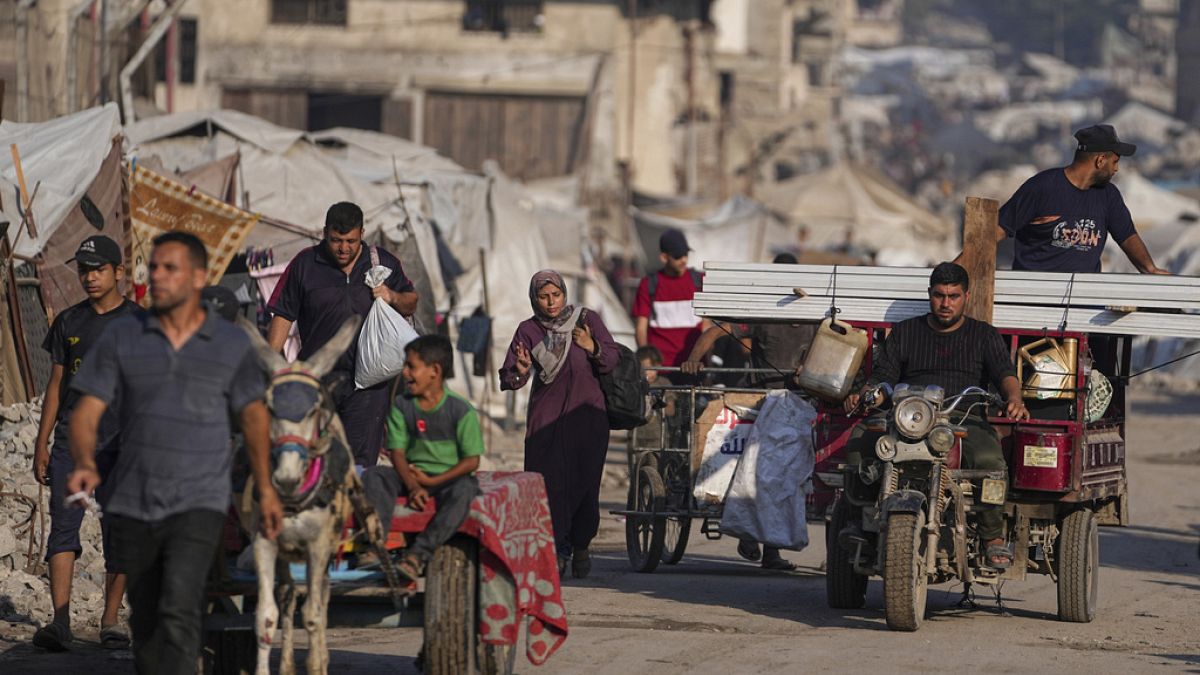

In recent days, the complex tapestry of Middle Eastern geopolitics has continued to unfold with developments that offer both challenges and hopeful potentialities. This period sees U.S. influence playing a significant role amid military escalations and diverse diplomatic dialogues shaping the region’s future.
Israeli Prime Minister Benjamin Netanyahu has underscored what he described as “broad regional possibilities,” suggesting new venues for diplomacy even as tensions run high. These comments emphasize the duality of the present situation: on one hand, there is the potential for transformative negotiations, and on the other, ongoing conflicts necessitate immediate attention.
In a parallel development, U.S. President Donald Trump has publicly encouraged a ceasefire in the Gaza region. This call comes amidst new Israeli military strategies, including mass evacuations in northern Gaza, as part of an expanded military operation. Trump’s appeal focuses on the need for a peaceful resolution and the immediate release of hostages, reflecting a desire for stability and human safety.
Moving Eastward, the dynamics between Israel and Iran have generated both apprehensions and diplomatic openings. According to U.S. Ambassador to Türkiye, Thomas Barrack, while this tension is palpable, it may indeed catalyze new diplomatic engagements. Notably, quiet discussions between Syria and Israel have been reported, possibly paving the way for future negotiations that could reshape longstanding regional relationships.
Complicating this landscape, Iran’s nuclear program remains a point of international focus. The head of the International Atomic Energy Agency (IAEA), Rafael Grossi, has indicated that Iran could achieve enriched uranium capabilities in a matter of months. This development has sparked international dialogues about nuclear proliferation and its profound implications for regional security.
Iran’s ambassador to the United Nations, Amir-Saeid Iravani, has affirmed the country’s commitment to continue nuclear enrichment for peaceful purposes, as permitted under international agreements. While open to negotiations, Iran has made it clear that it will not accept what it perceives as heavy-handed foreign demands. This stance adds another layer to the complex geopolitical chessboard, inviting international stakeholders to explore diplomatic paths.
Meanwhile, the legal journey of Netanyahu’s corruption trial has seen a pause, as scheduled hearings were postponed based on diplomatic and security grounds. This development has aroused varied interpretations, with some viewing it as a strategic maneuver amid a volatile political climate.
As these multifaceted developments unfold, the Middle East remains a region of profound potential and challenge. Within this interwoven fabric of assertions and negotiations, there lies an opportunity for meaningful dialogue that respects regional aspirations while fostering peace and stability. The world watches closely, with an abiding hope for reconciliations and sustainable paths forward.
Source: {link}
